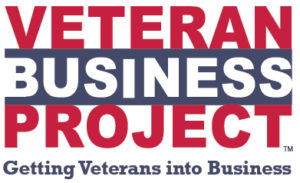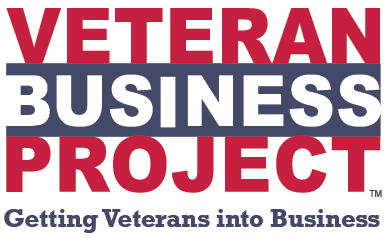
Amidst COVID-19, our volunteers dramatically stepped up efforts to support fellow veteran and military spouse business owners and entrepreneurs. For many business owners, survival has meant redesigning the airplane while flying it— not an easy feat, and this is reflected in our activities in the last quarter:
1. COVID-19 STRIKES CLOSE TO HOME. Almost all of us on the VBP team are business owners, some for decades. From our vantage, no small business is going to escape the pandemic without making fundamental changes in its SOP.
Thankfully, EIDL and PPP funding has given us a couple more months to make critical adjustments. For those borrowers with SBA-guaranteed loans, having the SBA take over our debt service for six months bought us additional time. However, with the recent surge in coronavirus, we have all had to endure fits and starts.
Sadly, what we have learned is that some of the smallest companies in our network have not been able to capitalize on either EIDL or PPP, and therefore had to shutter their businesses and/or furlough employees. National surveys show as much as a 25% failure rate for small businesses. We’ll be able to better gauge the situation when government relief funding runs out in September. Based on the statistic that 47.5% of workers are employed by small businesses, and that 40 million workers (a higher percentage than during the Great Depression) have filed for unemployment benefits, our estimate is that almost half of laid off workers are from the small business sector. Unable to reopen due to the spike in the coronavirus, small businesses, especially those in the service industry — foodservice, hospitality, personal care, construction, etc. — are hard hit.
2. HELPING BUSINESSES TO REIMAGINE THEMSELVES. Many of us are Boomers turned Zoomers. Our first stopgap measure/triage has been to conduct webinars (via Zoom) to propose and heighten the need for owners to adopt a higher order of financial, HR, marketing, and CRM awareness in order to strengthen their P&L performance.
For some Zoom sessions, we have invited experts with specific expertise, all for the purpose of upgrading owners’ management skills. Our hosts have been veterans chambers of commerce and other sister Veteran Service Organizations (VSOs), academia and CDFIs.
In this regard, COVID-19 has helped VBP to gain brand equity and more importantly, tested our scalability across the nation, particularly as VSOs, fellow veterans and milspouses continue to refer clients to us. How have we upgraded owners’ skills? In addition to our webcasts, and thanks to our CFO Fred Parrish’s generosity, we have given free copies of his recent book The E-Myth: Chief Financial Officer to our webinar attendees, so they can understand the financial implications of their management decisions. For small businesses needing an infusion of cash, Gary Lindner has referred clients to CDFIs he knows across the country.
Fortunately we have a full legal staff, with experienced attorneys such as Lynn Lowder, so have been able to help address such topics as contract an labor disputes, franchise law, loan forbearance, right to refuse service to customers, etc.
Given owners’ willingness and readiness to learn under COVID-19, we have crammed a lot of knowledge and skills into our clients’ management repertoire.
3. ULTIMATE GOAL AND THEME OF OUR WORK — STRENGTHEN THE VIABILITY OF VETERAN- AND MILSPOUSE-OWNED BUSINESSES. This can be accomplished through helping existing businesses weather COVID-19, facilitating the transfer of ownership as needed to successors should the owner decide to retire, helping veteran and milspouse entrepreneurs acquire non-veteranowned businesses, or through general M&A actions that can increase a client’s base of operations, add distribution channels, or improve the absorption rate of fixed costs.
Through all of this, the pace of change has quickened. Needless to say, everyone is putting in longer hours at work. While we have provided legal, HR and accounting information and support to help a number of small businesses close, we have also worked closely with other veteran and military spouse owners to grow their enterprises. Following are examples of small businesses we have helped this past quarter.
> Company A (Washington)
Referred to us by the SBA headquarters in Washington D.C., this 7-year old veteran-owned company was within 45 days of shutting down half its operations as a custom carbonfiber fabricator due to a shortage of raw materials from its U.S. supplier, whose cash flow had been jeopardized by COVID-19.
Through our consulting to rationalize its supply chain, capitalizing on EIDL and PPP funding (for which they had already applied), expanding its business credit and a referral to their local CDFI, we suggested a multi-stage growth plan for Company A, beginning with partnering with its U.S. supplier to make bulk purchases directly from China, before tariffs are imposed.
We also exposed a business expansion opportunity to develop a global company’s relationship with a carbon fiber OEM and seeking funding from EXIM Bank and DFC (formerly OPIC). Again, we are accelerating the change process. The senior executive at SBA plans to refer other clients.
> Company B (Arizona)
20-year old minority veteran-owned company employing 700 employees (faculty and staff) and under contract with the Department of Labor to manage Job Corps Centers across several states. Almost all of its students are Low-to-Moderate-Income (LMI) and Other Targeted Populations (OTP). Under COVID-19-imposed social distance requirements, this company faced difficulties in delivering classroom instruction.
We helped to facilitate a number of joint ventures with both nonprofit and for-profit organizations to strengthen Company B’s learning management system to provide remote training that ultimately helped the company secure three additional Job Corps Centers in two other states, thereby creating jobs for another 300 employees.
After a national bank had denied the company’s request for PPP funding, we helped the CEO to obtain funding from a competing bank. As the CEO is retirement age, we also discussed succession planning, and moving his HQ to an Opportunity Zone in order to help attract a successor(s). Company B’s annual revenue has grown from $50 to $70 million since we began working with them.
> Company C (California and Oregon)
Owner is a Native American 87-year old Marine who asked for our assistance with his succession plan. Through our consulting process, we learned that Company C has a disruptive construction technology that can erect single homes to large buildings, to include hospitals, in a fraction of the time traditional stick-built or tilt-up methods require, and with finished buildings that are substantially cheaper and more energy efficient.
We have introduced the owner to a hedge fund-based lending institution whose possible loan could help Company C to build inexpensive hospitals to accommodate the need for additional hospital beds for COVID-19 patients.
Because 50% of COVID-19 patients in Oregon are Native-American (due to multi-generational family and multifamily living arrangements), the owner will be able to use the hedge fundbased loans to grow his company. As you may know already, a majority of real estate loans are from non-bank institutions.
> Company D (California)
A veteran in his early 80’s asked for our support in selling a 35-acre waterfront property in NorCal. Consequently, we are consulting with the owner, his wife (retired investment banker) and a commercial real estate company to secure partners to create a mixed-use redevelopment project that will create thousands of new jobs for the city.
Through Company C’s owner, we have also connected Company D with a Native-American gaming company, with the prospects of building a casino on the waterfront property. We have already introduced several veteranowned civil engineering/construction companies to the project, to include Company C.
4. CREATING ALLIANCE PARTNERSHIPS TO SHARE THE WORKLOAD. In addition to VSOs such as The American Legion, Veterans of Foreign Wars, National Veterans Transition Services (aka REBOOT), and The Rosie Network, we have added a additional alliance partners with whom owe share synergies.
> Veteran LLC, a consortium of CDFIs, formed as an investment initiative of JPMorgan Chase’s Small Business Forward Program. Gary Lindner is our POC.
> U.S. Veterans Chamber of Commerce and its various chapters around the country. Members of VBP serve as advisors to the national chamber and are co-founders of the recently established California Veterans Chamber of Commerce, whose major sponsor is loanDepot, the fifth largest home mortgage lender in the U.S. Jim Wong is the chamber president.
> Insperity Professional Employment Organization. Headquartered in Houston, TX, Insperity is a 35-year old PEO with over one million co-employees. Insperity currently provides free use of its webcasts to VBP.
> LocalVest. A Software-as-a-Service (SaaS) platform connecting companies seeking investment capital to local accredited investors, LocalVest was founded two years ago by a Marine veteran previously employed by the SEC. LocalVest’s services can be used by both business sellers and buyers, and offers a network of accredited investors who are veterans. For VBP clients who are searching for equity funding, LocalVest provides ready access with no deal points.
WHO ARE WE HELPING?
In the last quarter, spurred by COVID-19, our team has spoken with hundreds of veteran- and military spouse-owned companies, with owners attending our webcasts to sharpen their management skills. Also, the number of inquiries to build or acquire companies has multiplied, from many who were recently laid off to newly transitioning service members who are interested in pursuing entrepreneurship. A third group has been comprised of small business owners who see an opportunity to acquire their competitors whose businesses are close to shuttering due to COVID-19.

